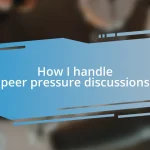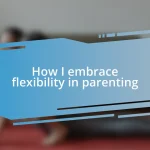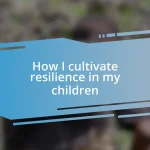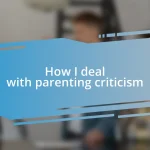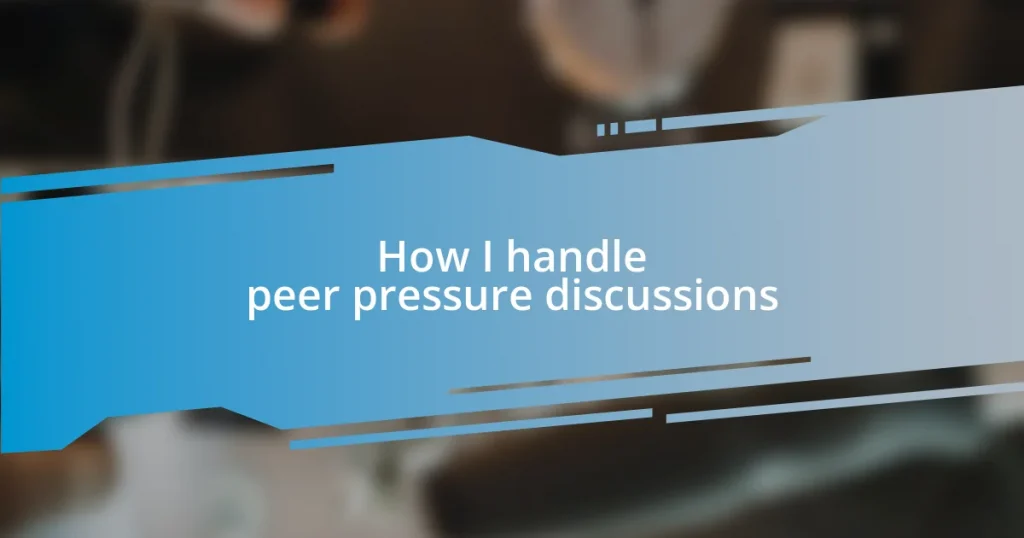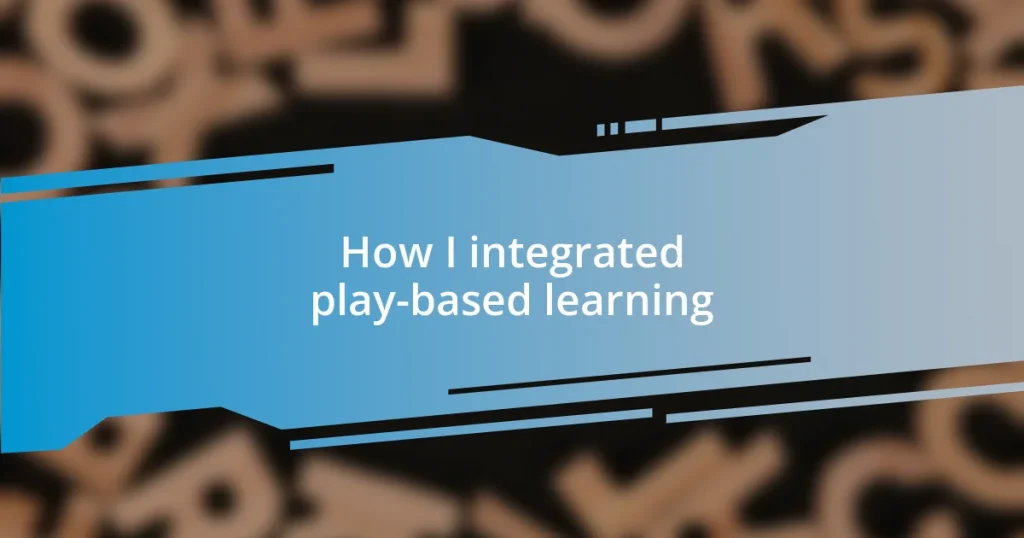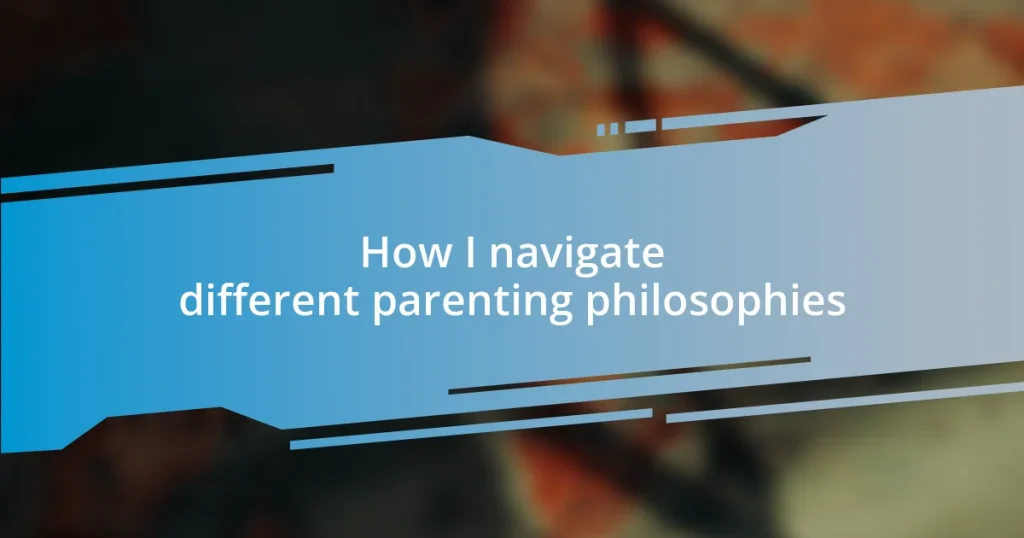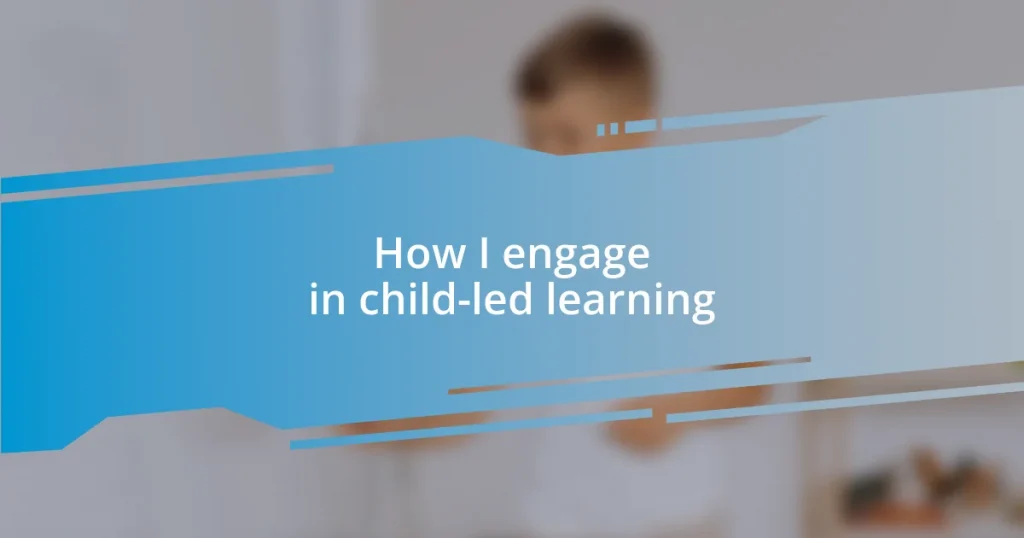Key takeaways:
- Peer pressure has both positive and negative influences; recognizing supportive friends can inspire positive choices while resisting negative ones requires courage.
- Building self-confidence through positive self-affirmation, stepping outside comfort zones, and surrounding oneself with uplifting people is essential for handling peer pressure.
- Practicing effective communication and refusal skills, such as using “I” statements and role-playing, empowers individuals to assert their boundaries and foster understanding in peer situations.
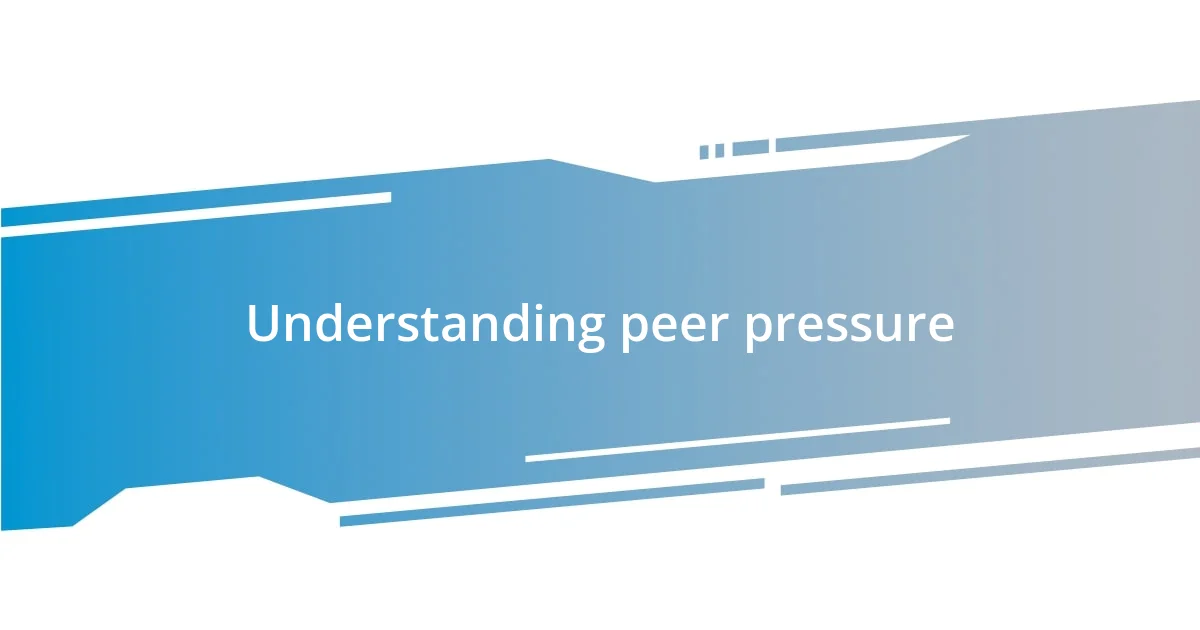
Understanding peer pressure
Peer pressure often sneaks up on us, disguised as casual conversation among friends. I remember feeling that pull during high school when friends would suggest ditching class or trying something I knew wasn’t right for me. It raises the question: why do we sometimes prioritize others’ opinions over our own values?
Understanding peer pressure means recognizing its dual nature. While it can lead to negative choices, the influence of supportive friends can also inspire positive behaviors. I’ve experienced both sides; for instance, when a friend encouraged me to join a study group, it not only improved my grades but also deepened our bond. How powerful is the right kind of peer influence in shaping our decisions?
Ultimately, peer pressure is a complex mix of emotional and social dynamics that can leave us feeling torn. When everyone around you is pushing for the same behavior, it’s easy to feel like an outsider for not conforming. I often think back to times when I struggled with this; it taught me that standing firm in my beliefs requires courage, especially when it feels like everyone is looking at you for acceptance.
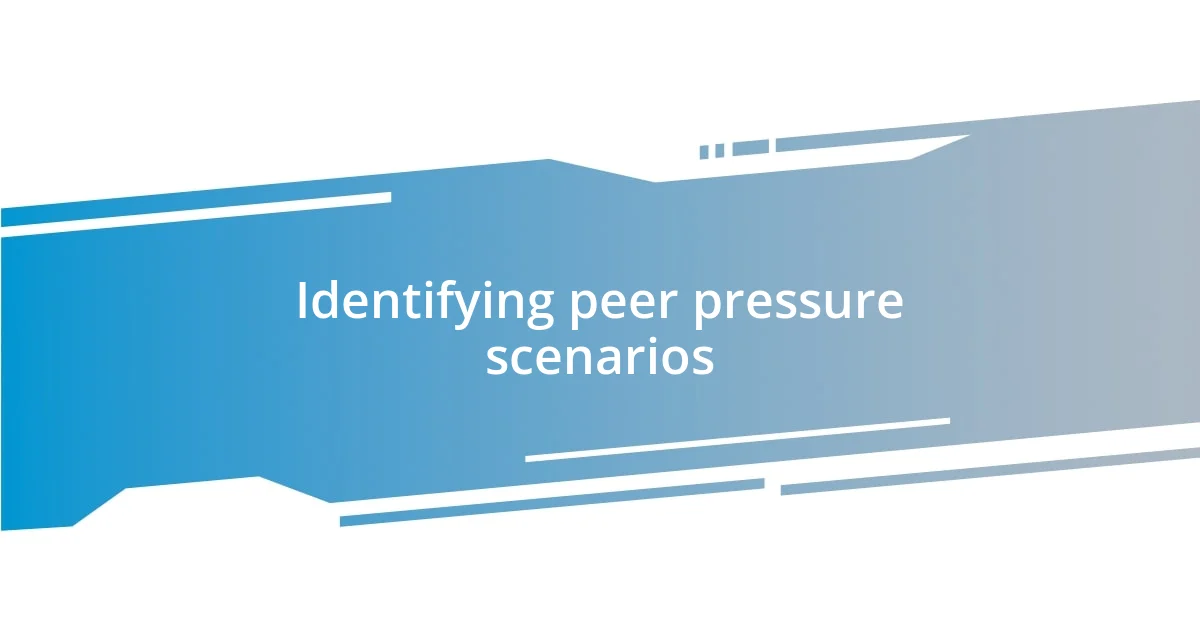
Identifying peer pressure scenarios
Identifying peer pressure scenarios can be more nuanced than it seems. It’s like navigating a maze where some paths lead you toward decisions that are true to yourself, while others might veer off into choices you wouldn’t typically consider. I recall a specific instance in college when friends were discussing going to a party. I sensed pressure not just to attend, but to drink heavily, even though I wasn’t comfortable with that choice. That moment vividly highlighted how peer pressure could transform casual outings into feelings of obligation.
Here are some common scenarios where peer pressure might arise:
– Social Events: Friends encouraging risky behavior, like binge drinking or drug use, at parties.
– Academic Settings: Classmates persuading you to cheat or skip studying for tests.
– Fashion and Trends: Feeling compelled to buy the latest items just to fit in with a group.
– Online Presence: Friends influencing you to post certain content on social media to gain more likes or comments.
– Hobbies and Interests: Being pushed to take up sports or activities that don’t genuinely interest you, just to be part of a group.
Recognizing these scenarios allows us to develop a more mindful approach to our choices. I think the deeper emotional connection we feel with our peers often clouds our judgment, making it all the more essential to stay grounded in what we truly believe.
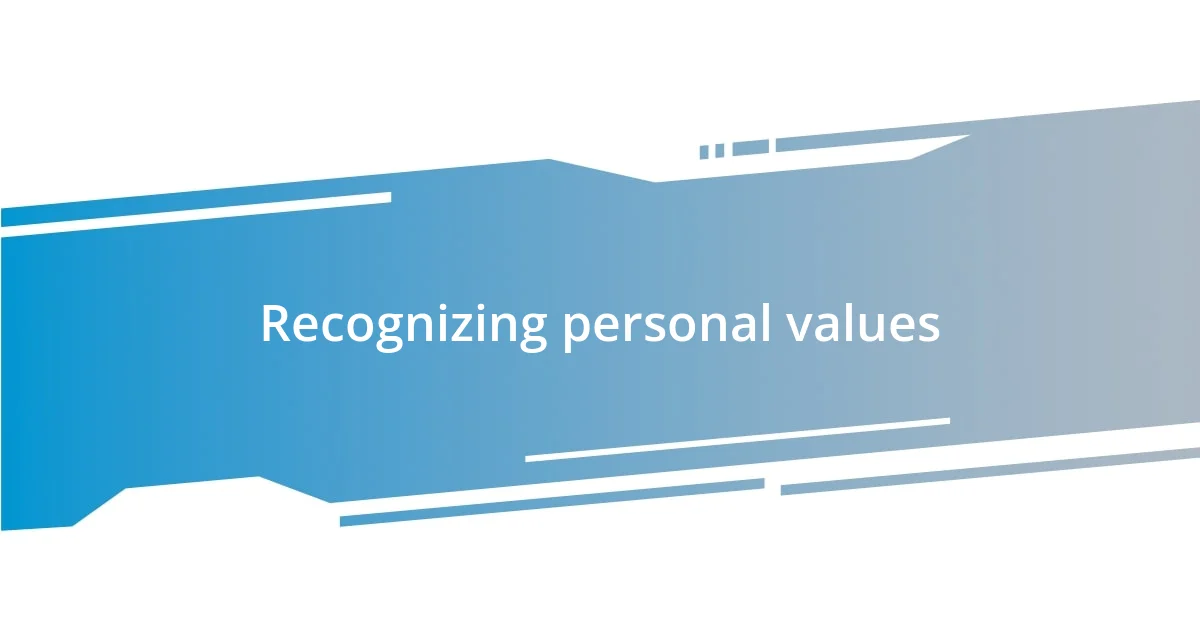
Recognizing personal values
Recognizing my personal values has been a journey filled with introspection. I’ve often found that my core beliefs are like a compass; they guide me even when there’s external pressure to stray off course. For example, during a long-held friendship, I once faced immense pressure to conform to a lifestyle that didn’t resonate with me. Reflecting on what truly mattered, I started to prioritize relationships that aligned with my values, leading me to choose friends who supported my decisions rather than swayed them.
It’s crucial to differentiate between what society expects and what you genuinely believe. In my case, understanding my values meant having difficult conversations with myself. There were moments when I’d catch myself agreeing with friends, but deep down, I knew it was for acceptance rather than authenticity. I learned that recognizing and articulating my values not only strengthened my resolve but also set the stage for more honest interactions.
Having clarity about my values often feels liberating. I remember a turning point when I chose not to join friends who were engaging in dishonest practices for the sake of a quick gain. Instead, embracing my values brought a sense of peace and confidence. This experience showed me that knowing and standing up for my personal values can create stronger connections and encourage others to do the same.
| Aspect | Personal Experience |
|---|---|
| Friends’ Influence | I chose friends who mirrored my values, creating a supportive network. |
| Self-Reflection | I asked myself tough questions to uncover what truly mattered to me. |
| Authenticity | Choosing honesty over peer acceptance led to deeper, more genuine relationships. |
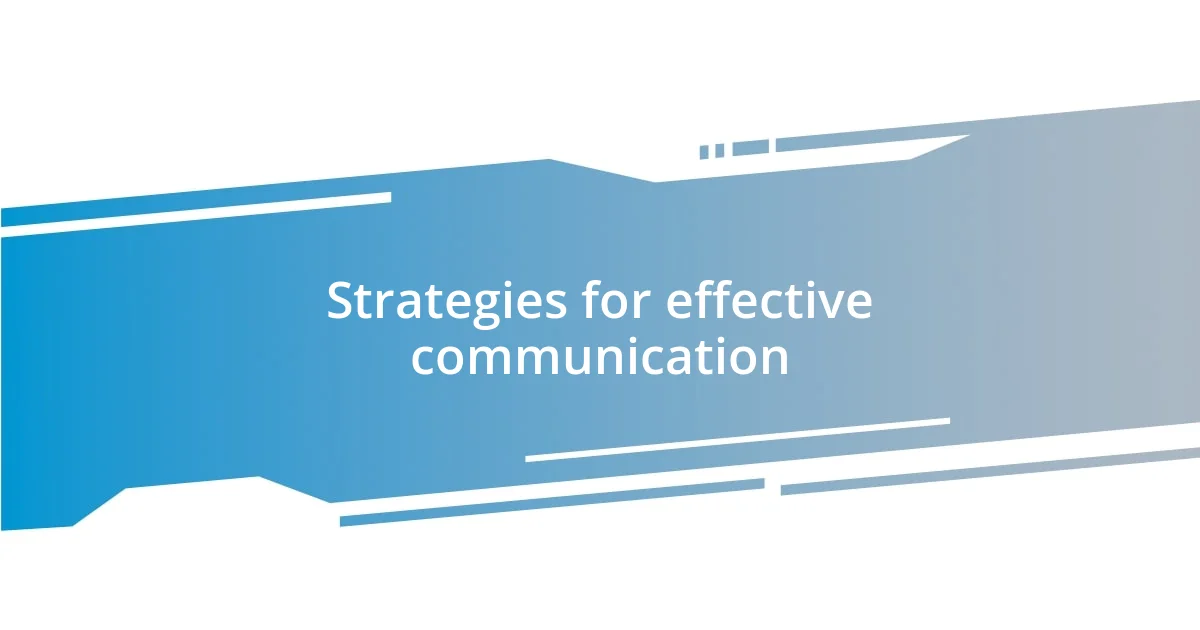
Strategies for effective communication
Communicating effectively during moments of peer pressure is a skill I’ve honed over time. One strategy that really helped me is practicing active listening. When my friends were debating whether to go out one night, I made an effort to not just hear what they were saying, but to genuinely understand their perspectives. By doing this, I was able to express my views without shutting them down, which resulted in a more respectful conversation.
Another approach I find valuable is using “I” statements to express my feelings. For instance, instead of saying, “You guys are wrong for wanting to go to that party,” I’d say, “I feel uncomfortable about going because I want to stay true to my values.” This shift in language not only softens the message but also allows my friends to see things from my point of view, fostering open dialogue instead of defensiveness.
Sometimes, sharing vulnerability can lead to deeper conversations. I remember one evening when I opened up about my struggle with alcohol at parties. That moment of honesty broke down barriers and encouraged others to share their experiences. Doesn’t it make you think about how our willingness to be open can create a safe space for everyone? When I’m honest about my challenges, I find that it often encourages others to reflect on their own choices.
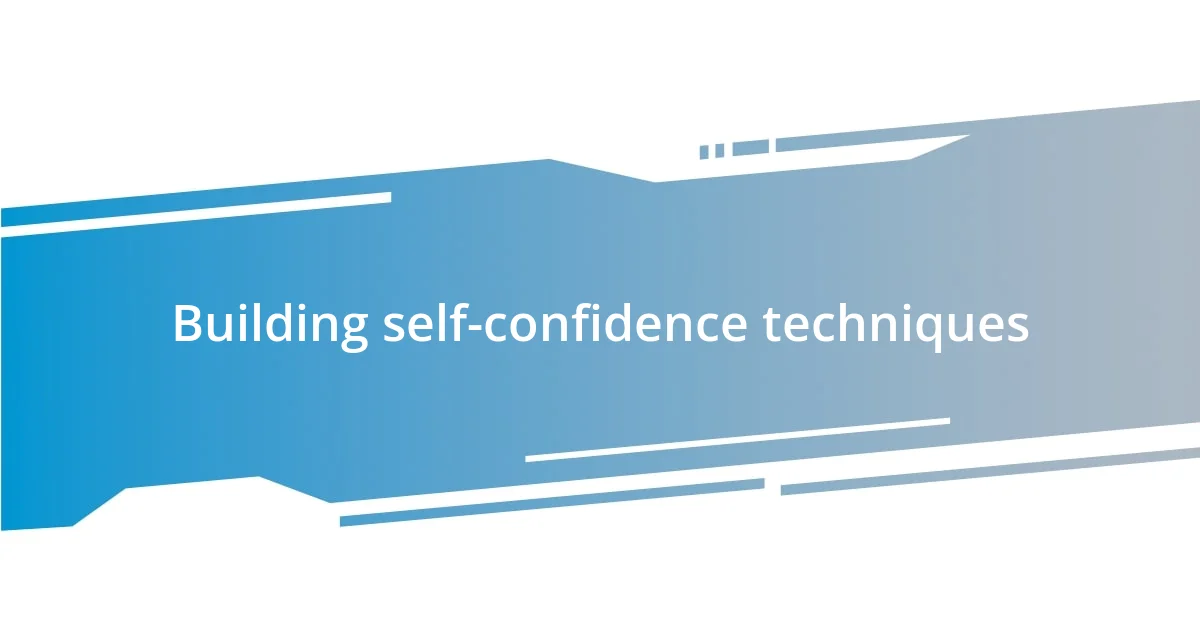
Building self-confidence techniques
Building self-confidence has been a transformative experience for me. One technique I often rely on is positive self-affirmation. Each morning, I take a moment to remind myself of my strengths and accomplishments. For instance, on days when I feel uncertain, I’ll reflect on the time I successfully led a project at work. This practice cultivates a sense of self-worth and prepares me to face challenges with a more resilient mindset.
Another powerful method I’ve found is stepping outside my comfort zone. I often recall the first time I spoke in front of a large group. The nervousness was overwhelming, yet afterward, I felt a rush of exhilaration. That experience taught me that growth often lies beyond discomfort. Have you ever pushed yourself past a limit and discovered a newfound confidence? It’s incredible how those moments can reshape our self-perception.
Additionally, surrounding myself with uplifting people has been crucial. I remember a friend who constantly encouraged me to pursue my passions, even when I doubted myself. This support reminded me that confidence isn’t just an individual journey—it’s often influenced by those we choose to surround ourselves with. Engaging with positive, supportive relationships amplifies my belief in my own abilities. Isn’t it fascinating how our environments play such a significant role in our self-esteem?
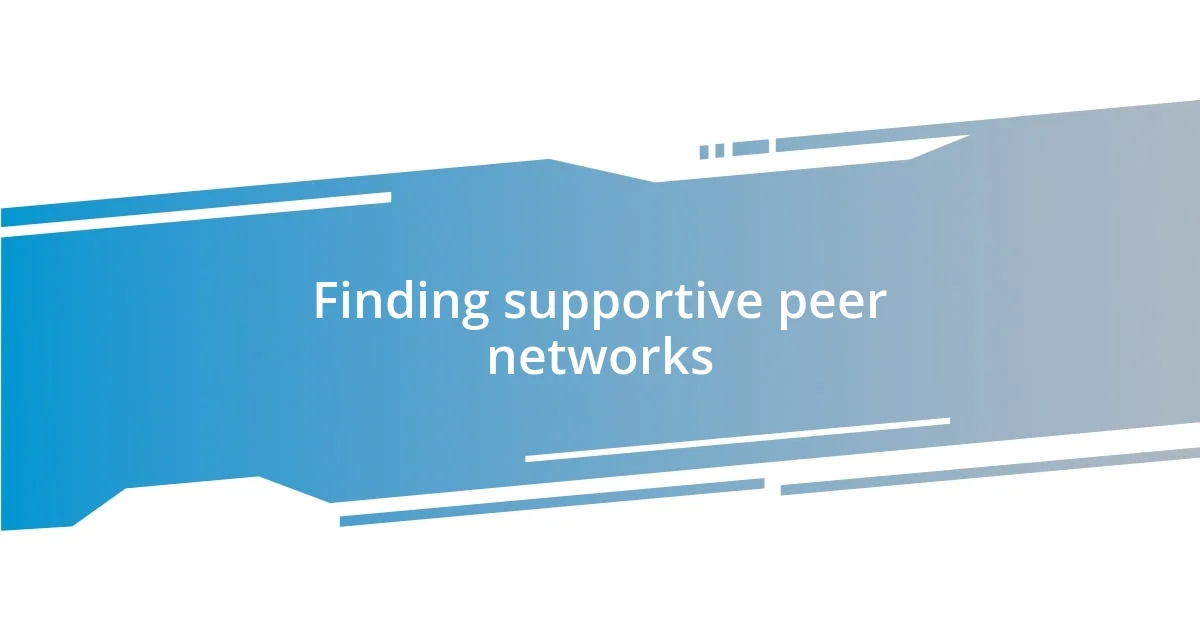
Finding supportive peer networks
Finding supportive peer networks has been a game-changer for me, especially in moments of pressure. I recall a time during college when I joined a study group that valued both academics and personal growth. Being surrounded by like-minded individuals created an environment where we uplifted each other, and I felt empowered to voice my opinions without fear of judgment.
One of the most impactful aspects of these networks is that they often come from unexpected places. For instance, I discovered supportive friends at my local community center while participating in a volunteer program. Engaging in shared activities not only strengthened our bonds but also provided a safe space to discuss our individual pressures and struggles. Have you ever sat down with someone who truly gets you? Those connections can be incredibly liberating.
It’s important to seek out communities that resonate with your values and interests. I once attended a workshop focused on mental health awareness, where I met peers who were genuinely passionate about advocating for positive change. Being part of that network fueled my motivation to tackle challenges head-on and reminded me that you’re never alone in your journey. How often do we find ourselves thriving when we feel connected? It’s these nurturing relationships that make all the difference.
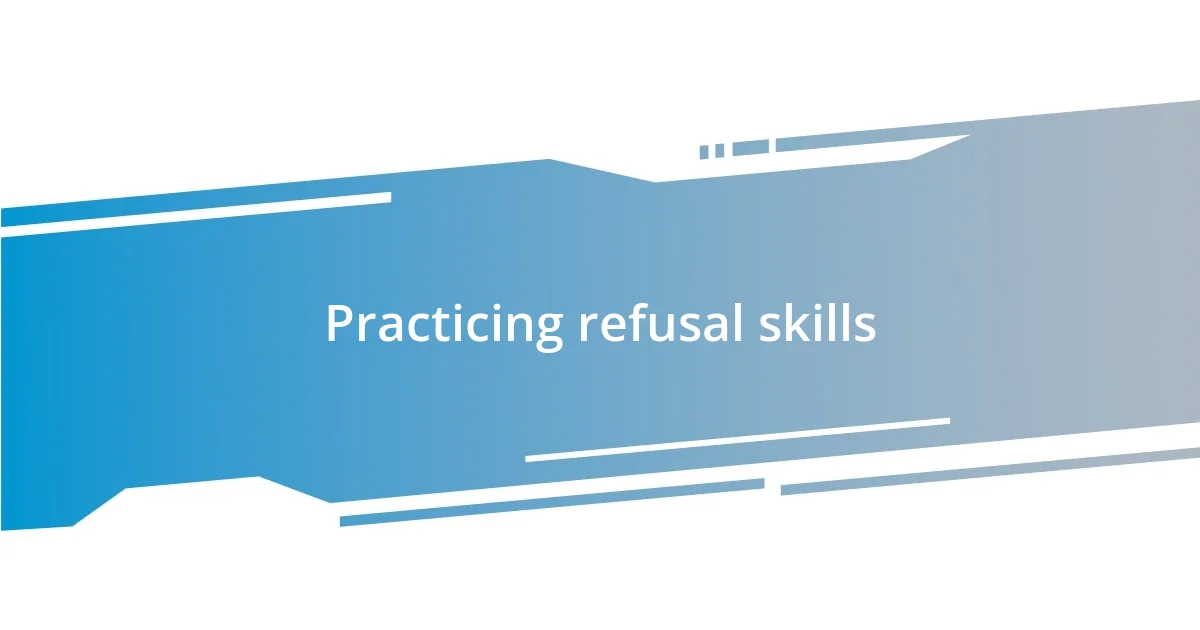
Practicing refusal skills
Practicing refusal skills has been a fundamental part of my growth. I vividly recall an evening out with friends when they suggested trying something I wasn’t comfortable with. Instead of feeling pressured, I took a deep breath and calmly expressed my feelings. A simple, “I appreciate the invite, but that’s not for me,” opened the door to a respectful conversation. I was pleasantly surprised that my friends understood and even supported my choice. Have you ever navigated a similar situation? It can be empowering to assert your boundaries.
One technique I’ve developed is role-playing scenarios in a secure environment. I remember practicing with a close friend, where we simulated different peer pressure situations. The experience was enlightening; it gave me the confidence to politely decline while remaining true to myself. Through practice, I learned how to phrase my refusals in a way that felt authentic. It’s intriguing how honing this skill can transform anxiety into confidence, isn’t it?
Moreover, I’ve found that using “I” statements can be incredibly effective. Instead of saying, “You’re putting me in a tough spot,” I might say, “I feel uncomfortable with this.” This subtle shift not only communicates my feelings but also showcases my stance without putting others on the defensive. The beauty of this approach lies in fostering understanding—both in myself and in those around me. Wouldn’t you agree that expressing our feelings can pave the way for more open dialogues?




